Film students adapt to finish semester film projects immediately following classes cancelled
Digital filmmaking sophomore Julia Perret operates the camera as the cast and crew prepare for shooting. Film students worked to quickly finish their projects despite the end of on-campus classes.
March 29, 2020
One of the areas hit hard by the sudden coronavirus reshuffle is Loyola’s film department. The student-run Crescent City Film Festival, which was expected to showcase short films from Loyola film students in April, has been postponed to next year.
However, the department decided to push ahead with the scheduled production of short films for its Introduction to Digital Filmmaking and Script to Screen classes, which happened to coincide with the weekend following the school administration’s announcement of the switch to online classes.
The shooting schedule was a requirement for the classes, but film professor Robert Racine said that film students who did not end up shooting material due to quickly leaving campus to go home would be given work to do as well.
“We will give them alternate assignments with pre-made material in order to catch up,” he said. “In addition, we are currently working on alternate means of getting them to shoot footage from home.”
Digital filmmaking freshman Jordan Goldman, who is currently in the Intro to Digital Filmmaking class, was one of the film students who did not get to shoot footage.
“From my observation, everyone was very prepared and excited to film their movies, for some of which this would be their first feature short film,” she said of the unexpected event. “I believe it made everyone a little bit sad that we were unable to shoot.”
Meanwhile, digital filmmaking sophomore Sidney Buckingham, who wrote and directed the short film “Retrograde Progressions” for the Script to Screen class, was faced with the challenge of having a smaller crew because of COVID-19.
“It was definitely a stressful time, as one of our crew members had been in contact with someone who tested positive for the virus and decided to self-quarantine himself in his house,” she said.
Digital filmmaking sophomore Haley Kastner, one of the producers in Buckingham’s short film, thought that the upcoming production was called off until she got word from her instructor Miles Doleac to continue shooting.
“I thought everything’s gonna be canceled,” she said. “Luckily, our professors took care of everything.”
With the additional challenge of filming in a risky environment in the middle of the outbreak, Kastner and Buckingham took some precautions for filming in a few locations around New Orleans.
“I knew that putting a bunch of people together was a risk, even with fewer people,” Kastner said.
“I had everyone constantly use hand sanitizers on set,” Buckingham added.
Even with the challenges posed, Kastner is confident that production for “Retrograde Progressions”, which is about a girl entering college and dealing with the recent loss of her sister, went well.
“It is an inspiring time to have anyone come together at this moment,” she said.
Kastner and Buckingham’s professor Doleac said he is pleased that his students adapted to their obstacles.
“I’m proud to see what they have accomplished,” he said. “While we believe that some measure of pedagogical normalcy is to be observed, we also believe in engaging in creative processes.”
Meanwhile, Racine, who teaches the Intro to Digital Filmmaking class, acknowledged that while safety is the first priority, he is confident that Loyola film majors will do whatever is necessary to craft exceptional short films.
“My goal is for them to apply the skills they learned from class,” he says.
In the meantime, Goldman believes that the coronavirus situation will be resolved in the near future.
“I am hoping for things to slowly get back to order,” she says.


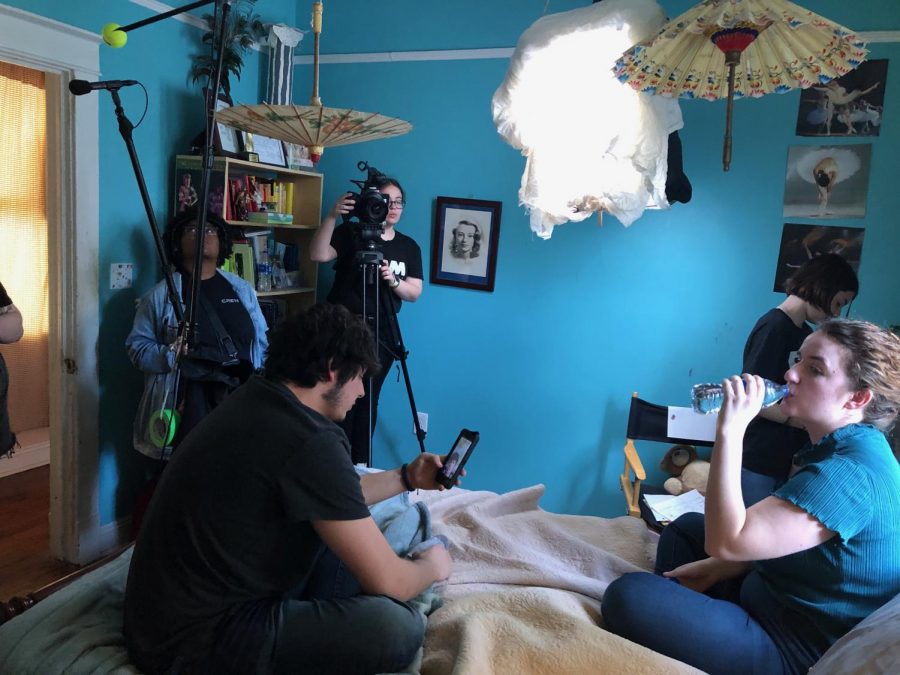





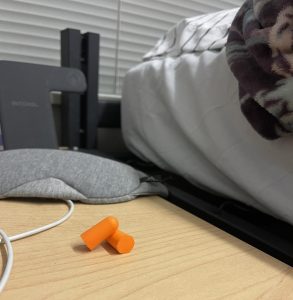


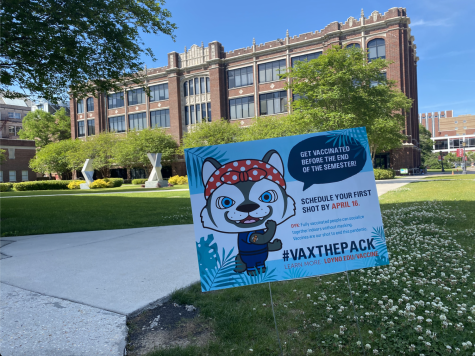
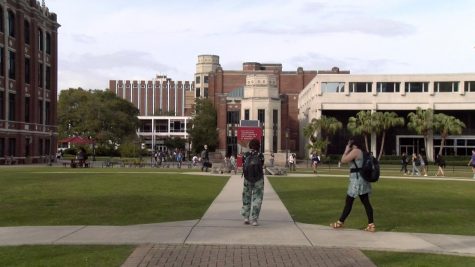

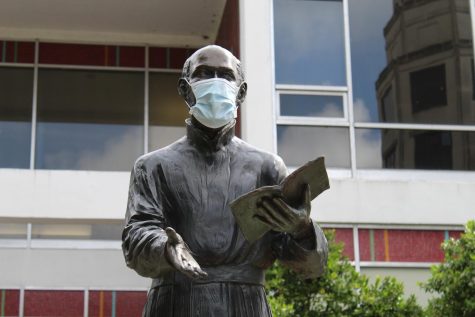

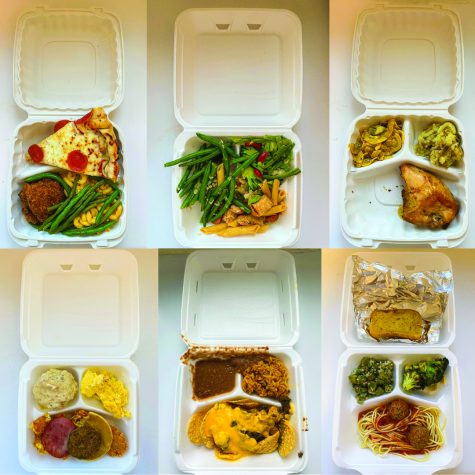
Joshua Johnston • Apr 7, 2021 at 8:28 am
Its shocking to me to see the dept subverted the rules about classes gathering and allowed students to gather together. When the dept chair is a pro-Trump conservative, it is not surprising that it was treated so casually and flippantly. Just gross! A department should care more about the wellbeing of its students than getting their next project in. Putting students in the position where they’re going to make the wrong choice was predictable and preventable.